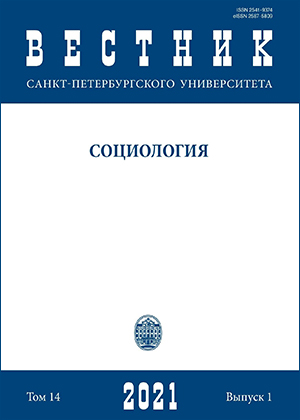Line managers’ managerial practices in the context of subordinates’ behavioral reactions
DOI:
https://doi.org/10.21638/spbu12.2021.104Abstract
The article is dedicated to the analysis of the influence of line managers’ day-to-day practices on employees’ behavior, desirable for the organization, and on the attitudes of the managers themselves. Desirable behavior of employees included organizational and civic behavior, as well as self-education practices and team cohesion. Line managers’ job attitudes included job satisfaction, work involvement and organization commitment. The empirical analysis is based on the survey of 1116 line managers in 400 organizations from 11 industries. Several results were obtained during the current study. First, four groups of line managers’ day-to-day practices were identified: basic functions, such as organization and control as well as planning, and advanced functions, such as employee development and finance management. Second, line managers’ employee development practices have the highest level of positive effect on the desired behavior of subordinates, while finance management practices have a negative effect on team cohesion and prosocial behavior. Despite the negative effect, a behavior is inspired that is focused on initiatives and voice. Also, employee development practices have a positive influence on the job attitudes of line mangers, job involvement and organization commitment, but finance management has a strong negative influence on line managers’ satisfaction. Consequently, it seems worthwhile to increase the level of line managers’ employee development practices, while sole finance management does not result in positive effects. A high level of
employee development practices may increase an organization’s effectiveness.
Keywords:
line managers, line managers’ day-to-day practices, civic behavior, employees’ behavior, job attitudes, job satisfaction, organizational commitment, prosocial behavior
Downloads
References
References
Downloads
Published
How to Cite
Issue
Section
License
Articles of "Vestnik of Saint Petersburg University. Sociology" are open access distributed under the terms of the License Agreement with Saint Petersburg State University, which permits to the authors unrestricted distribution and self-archiving free of charge.




